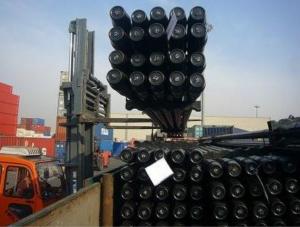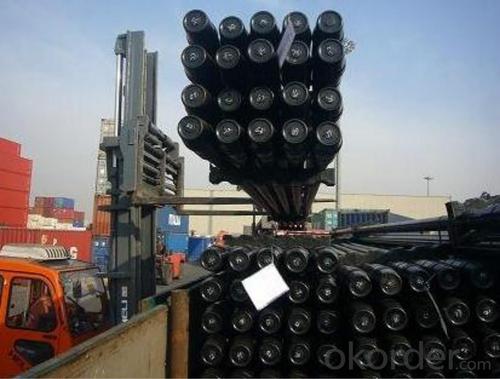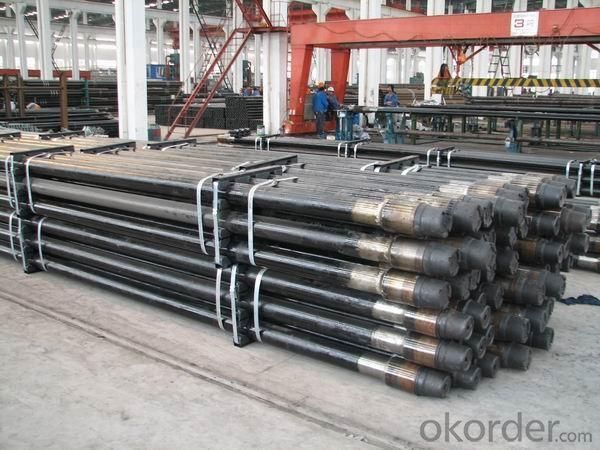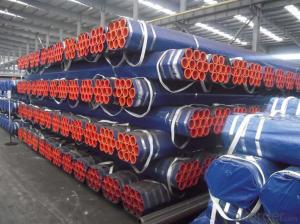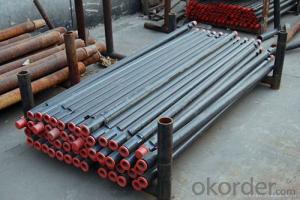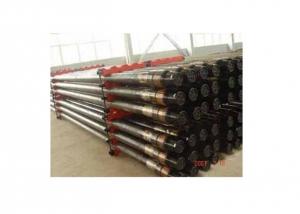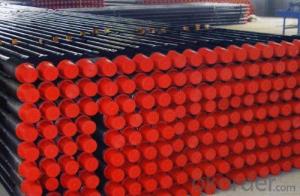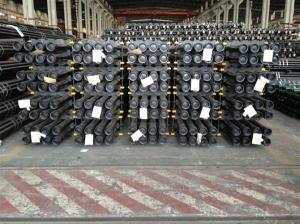Oilfield Drill Pipe API 5DP
- Loading Port:
- Shanghai Port
- Payment Terms:
- TT or LC
- Min Order Qty:
- 50 MT m.t.
- Supply Capability:
- 5000 Tons Per Month m.t./month
OKorder Service Pledge
OKorder Financial Service
You Might Also Like
Specifications for Oilfield Drill Pipe API 5DP
|
|
|
|
|
|
|
|
|
|
|
|
|
|
|
|
|
| Designations |
| Pipe body |
| Calculated weight |
|
|
| Upset dimensions |
|
|
|
| |||
|
|
|
|
|
|
|
| OD |
| Length of | Length of | Length of | Length of | Length end of |
| |
|
|
|
|
|
|
|
|
| ID at End |
| ||||||
| Size | Nominal | OD | WT | ID | Plain end | Upset |
| internal | internal | external | external | pipe to taper |
| ||
|
| of Pipe | upset | taper | upset | taper | fade out |
| ||||||||
|
| weight |
|
|
|
|
|
|
|
| ||||||
|
|
|
|
|
|
| +1/8 | ±1/16 | +1 1/2 | Min. | Min. | Min. | Min. | Max. |
| |
|
|
|
|
|
|
|
|
| ||||||||
|
|
|
|
|
|
|
| -1/32 | - 1/2 |
| ||||||
|
|
|
|
|
|
|
|
|
|
|
|
|
|
| ||
| in | lb/ft | in | in | in | lb/ft | lb/ft | in | in | in | in | in | in | in | in |
|
|
|
|
|
|
|
|
|
|
|
|
|
|
|
| ||
D | t | d | wpe | ew | Dou | dou | Liu | miu | Leu | meu | meu | Leu+meu |
| |||
|
|
|
| |||||||||||||
|
|
|
|
|
|
|
| 0Internal upset |
|
|
|
|
|
|
| |
|
|
|
|
|
|
|
|
|
|
|
|
|
|
|
| |
2 7/8 | 10.40 | 2.875 | 0.362 | 2.151 | 9.72 | 3.20 | 2.875 | 1 15/16 | 1 3/4 | 1 1/2 | - | - | - | - |
| |
|
|
|
|
|
|
|
|
|
|
|
|
|
|
|
|
|
|
| 9.50 | 3.500 | 0.254 | 2.992 | 8.81 | 4.40 | 3.500 | 2 1/4 | 1 3/4 | - | - | - | - | - |
|
3 1/2 |
|
|
|
|
|
|
|
|
|
|
|
|
|
|
| |
13.30 | 3.500 | 0.368 | 2.764 | 12.31 | 4.40 | 3.500 | 1 15/16 | 1 3/4 | 1 1/2 | - | - | - | - |
| ||
|
|
|
|
|
|
|
|
|
|
|
|
|
|
|
|
|
|
| 15.50 | 3.500 | 0.449 | 2.602 | 14.63 | 3.40 | 3.500 | 1 15/16 | 1 3/4 | 1 1/2 | - | - | - | - |
|
|
|
|
|
|
|
|
|
|
|
|
|
|
|
|
|
|
4 | 11.85 | 4.000 | 0.262 | 3.476 | 10.46 | 4.20 | 4.000 | 2 15/16 | 1 3/4 | - | - | - | - | - |
| |
|
|
|
|
|
|
|
|
|
|
|
|
|
|
| ||
14.00 | 4.000 | 0.330 | 3.340 | 12.93 | 4.60 | 4.250 | 2 3/4 | 1 3/4 | 2 | - | - | - | - |
| ||
|
|
| ||||||||||||||
|
|
|
|
|
|
|
|
|
|
|
|
|
|
|
| |
4 1/2 | 13.75 | 4.500 | 0.271 | 3.958 | 12.24 | 5.20 | 4.750 | 3 3/8 | 1 3/4 | - | - | - | - | - |
| |
|
|
|
|
|
|
|
|
|
|
|
|
|
|
|
| |
5 | 16.25 | 5.000 | 0.296 | 4.408 | 14.87 | 6.60 | 5.000 | 3 3/4 | 1 3/4 | - | - | - | - | - |
| |
|
|
|
|
|
|
|
|
|
|
|
|
|
|
|
|
|
|
|
|
|
|
|
|
| 0External upset |
|
|
|
|
|
|
| |
|
|
|
|
|
|
|
|
|
|
|
|
|
|
|
| |
2 3/8 | 6.65 | 2.375 | 0.280 | 1.815 | 6.26 | 1.80 | 2.656 | 1.815 | - | - | 1 1/2 | 1 1/2 | - | 4 |
| |
|
|
|
|
|
|
|
|
|
|
|
|
|
|
|
| |
2 7/8 | 10.40 | 2.875 | 0.362 | 2.151 | 9.72 | 2.40 | 3.219 | 2.151 | - | - | 1 1/2 | 1 1/2 | - | 4 |
| |
|
|
|
|
|
|
|
|
|
|
|
|
|
|
|
|
|
|
| 9.50 | 3.500 | 0.254 | 2.992 | 8.81 | 2.60 | 3.938 | 2.992 | - | - | 1 1/2 | 1 1/2 | - | 4 |
|
3 1/2 |
|
|
|
|
|
|
|
|
|
|
|
|
|
|
| |
13.30 | 3.500 | 0.368 | 2.764 | 12.31 | 4.00 | 3.938 | 2.602 | 2 1/4 | 2 | 1 1/2 | 1 1/2 | - | 4 |
| ||
|
|
|
|
|
|
|
|
|
|
|
|
|
|
|
|
|
|
| 15.50 | 3.500 | 0.449 | 2.602 | 14.63 | 2.80 | 3.938 | 2.602 | - | - | 1 1/2 | 1 1/2 | - | 4 |
|
|
|
|
|
|
|
|
|
|
|
|
|
|
|
|
|
|
4 | 11.85 | 4.000 | 0.262 | 3.476 | 10.46 | 5.00 | 4.500 | 3.476 | - | - | 1 1/2 | 1 1/2 | - | 4 |
| |
|
|
|
|
|
|
|
|
|
|
|
|
|
|
| ||
14.00 | 4.000 | 0.330 | 3.340 | 12.93 | 5.00 | 4.563 | 3.340 | - | - | 1 1/2 | 1 1/2 | - | 4 |
| ||
|
|
| ||||||||||||||
|
|
|
|
|
|
|
|
|
|
|
|
|
|
|
|
|
|
| 13.75 | 4.500 | 0.271 | 3.958 | 12.24 | 5.60 | 5.063 | 3.958 | - | - | 1 1/2 | 1 1/2 | - | 4 |
|
4 1/2 |
|
|
|
|
|
|
|
|
|
|
|
|
|
|
| |
16.60 | 4.500 | 0.337 | 3.826 | 14.98 | 5.60 | 5.063 | 3.826 | - | - | 1 1/2 | 1 1/2 | - | 4 |
| ||
|
|
|
|
|
|
|
|
|
|
|
|
|
|
|
|
|
|
| 20.00 | 4.500 | 0.430 | 3.640 | 18.69 | 5.60 | 5.063 | 3.640 | - | - | 1 1/2 | 1 1/2 | - | 4 |
|
|
|
|
|
|
|
|
|
|
|
|
|
|
|
|
|
|
Good price Oilfield Drill Pipe API 5DP with high quality,
1)Packaging:Steel strip or as request.
2)Delivery:Container or bundle .
3)Production Flow: Drill pipes are steel tubes with threaded ends that are used to connect a drill rig’s surface equipment with its drilling equipment, or bottomhole assembly, at the bottom of a well.They are used to transport drilling fluid to drill bits, and to raise, lower and rotate the bottomhole assembly along with the drill bit. Drill pipes must be manufactured to withstand severe internal and external pressure, distortion, bending and vibration. They are reusable and are not considered consumables in the process of exploring for and extracting oil and gas. Green pipes, raw steel tubes, are processed through a number of steps to make them into drill pipes. First, the walls of green pipes are thickened by a process called "upsetting" through which a pipe’s exterior surface is pushed inward. Next, the pipes are threaded and receive a strength-enhancing copper plating.Nondestructive quality control inspection then takes place, after which the pipes are welded to tool joints. Pipes then undergo weld heat treatments and a weld finishing processes that removes welding stress. More tests, including hardness, pressure and non-destructive inspection are carried out on the finished drill pipes before final coating and packaging.
Details for Oilfield Drill Pipe API 5DP with pictures shown as below,
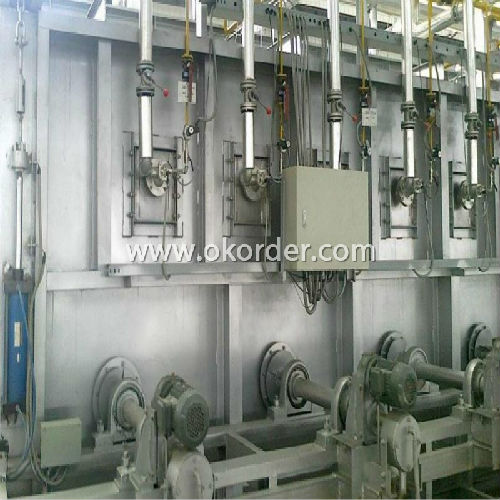
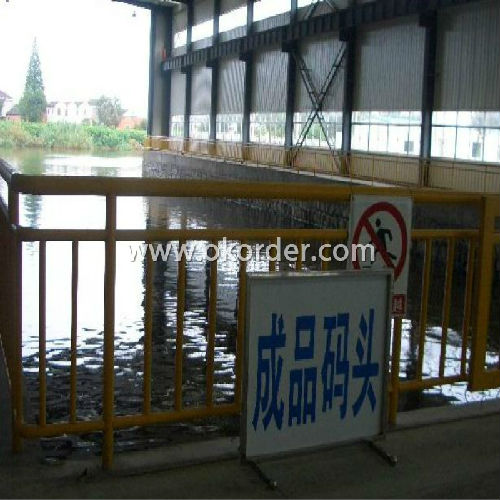
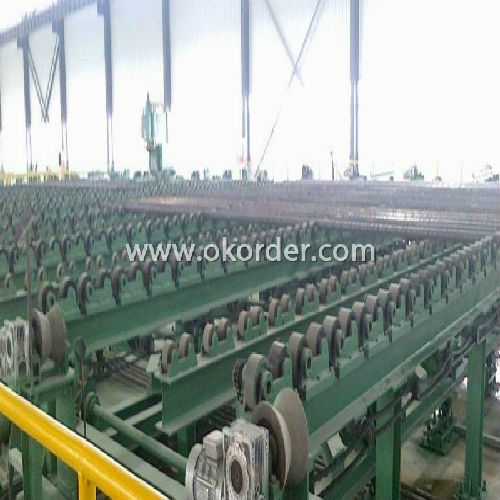
Welcome to order from us for Oilfield Drill Pipe API 5DP .
- Q: Can steel pipes be used for telecommunications cables?
- Steel pipes are not appropriate for telecommunications cables. Typically, fiber optic or copper materials are used for telecommunications cables. Steel pipes serve different purposes in construction and plumbing, but they are not suitable for transmitting data or electrical signals. Fiber optic cables are specifically designed to carry high-speed data over long distances, while copper cables are utilized for transmitting both data and electrical signals. Unlike steel pipes, these cables possess specific insulation and shielding properties required for telecommunications purposes.
- Q: Can steel pipes be galvanized?
- Yes, steel pipes can be galvanized. Galvanizing is a process of applying a protective zinc coating to steel or iron to prevent corrosion. The steel pipes are submerged in a bath of molten zinc, which forms a metallurgical bond with the steel, creating a corrosion-resistant coating. Galvanizing is commonly used in various applications, such as plumbing, construction, and outdoor structures, to extend the lifespan of steel pipes and prevent rusting.
- Q: Can galvanized steel tubes simmer?
- Galvanized pipe bending is one of the elbow, the surface of the pipe is coated with a layer of zinc material to improve the corrosion resistance of the elbow. Galvanized pipe bending hot galvanized and galvanized two kinds, hot galvanized, zinc coating thickness, zinc plating cost is low, the surface is not very smooth. Galvanized pipe bending cold tube, hot tube, the former has been banned, and the latter is also advocated by the state for the time being.
- Q: What is the maximum temperature that steel pipes can withstand?
- The maximum temperature that steel pipes can withstand depends on the grade and type of steel used. Generally, carbon steel pipes can withstand temperatures up to 1000°C (1832°F), while stainless steel pipes can handle temperatures up to 1200°C (2192°F). However, it is essential to consult the specific specifications and guidelines provided by the manufacturer for accurate temperature limits.
- Q: ASME seamless tube how to express, what is the form, I did not find on the ASME, thank God!
- You can refer to the ASME B31.10, such as the requirements for the SA106GRB seamless steel tube outer diameter of 168.3 x 7.11, specifications can be marked as NPS6 SCH40 SMLS, the real mark should include pressure steel pipe factory name or trademark, and the material level, specifications, standards, wall number, batch number, pressure test (if any), NDE detection (if any)
- Q: How do you solder purple copper plate and steel tube?
- The copper plate and the steel tube are brazed by brazing or argon arc welding.
- Q: What's the difference between stainless steel seamless tube and stainless steel welded pipe?
- Stainless steel seamless steel tube is a kind of steel strip with hollow section and without seams.
- Q: What is the difference between steel pipes and HDPE pipes?
- Steel pipes and HDPE pipes are both commonly used for various applications, but they differ in their composition and characteristics. Steel pipes are made from a combination of iron and carbon, offering high strength, durability, and resistance to extreme temperatures and pressure. They are commonly used in industries like oil and gas, construction, and plumbing. On the other hand, HDPE pipes are made from high-density polyethylene, a thermoplastic material known for its flexibility, corrosion resistance, and lightweight nature. HDPE pipes are often used in water supply and drainage systems, as well as for underground and aboveground applications. Ultimately, the choice between steel pipes and HDPE pipes depends on the specific requirements of the project, including factors such as cost, application, and environmental conditions.
- Q: Can steel pipes be used for wastewater treatment plants?
- Yes, steel pipes can be used for wastewater treatment plants. Steel pipes are commonly used in wastewater treatment plants due to their durability, strength, and resistance to corrosion. They are suitable for conveying and transporting various types of wastewater and can withstand the harsh and corrosive environment found in these facilities. Additionally, steel pipes can be easily welded and joined, allowing for efficient installation and maintenance processes.
- Q: How are steel pipes joined together?
- Steel pipes are typically joined together using various methods such as welding, threading, and flanging. Welding involves melting the ends of the pipes and fusing them together, creating a seamless connection. Threading involves cutting screw-like grooves on the pipe ends, which are then screwed tightly together using a threaded coupling. Flanging involves adding a flange, a flat plate with holes, to each pipe end, and then bolting them together securely. These joining techniques ensure strong and durable connections between steel pipes.
1. Manufacturer Overview
| Location | Wuxi, China |
| Year Established | 1991 |
| Annual Output Value | 300,000Tons |
| Main Markets | Europe; Southeast Asia; etc. |
| Company Certifications | API 5L;API 5CT;API Q1;ISO/TS29001 |
2. Manufacturer Certificates
| a) Certification Name | |
| Range | |
| Reference | |
| Validity Period |
3. Manufacturer Capability
| a) Trade Capacity | |
| Nearest Port | Wuxi; Shanghai |
| Export Percentage | 41% - 50% |
| No.of Employees in Trade Department | 3900-4000 People |
| Language Spoken: | English; Chinese; Spanish |
| b) Factory Information | |
| Factory Size: | Above 450,000 square meters |
| No. of Production Lines | Above 10 |
| Contract Manufacturing | OEM Service Offered;Design Service Offered |
| Product Price Range | Average |
Send your message to us
Oilfield Drill Pipe API 5DP
- Loading Port:
- Shanghai Port
- Payment Terms:
- TT or LC
- Min Order Qty:
- 50 MT m.t.
- Supply Capability:
- 5000 Tons Per Month m.t./month
OKorder Service Pledge
OKorder Financial Service
Similar products
Hot products
Hot Searches
Related keywords
